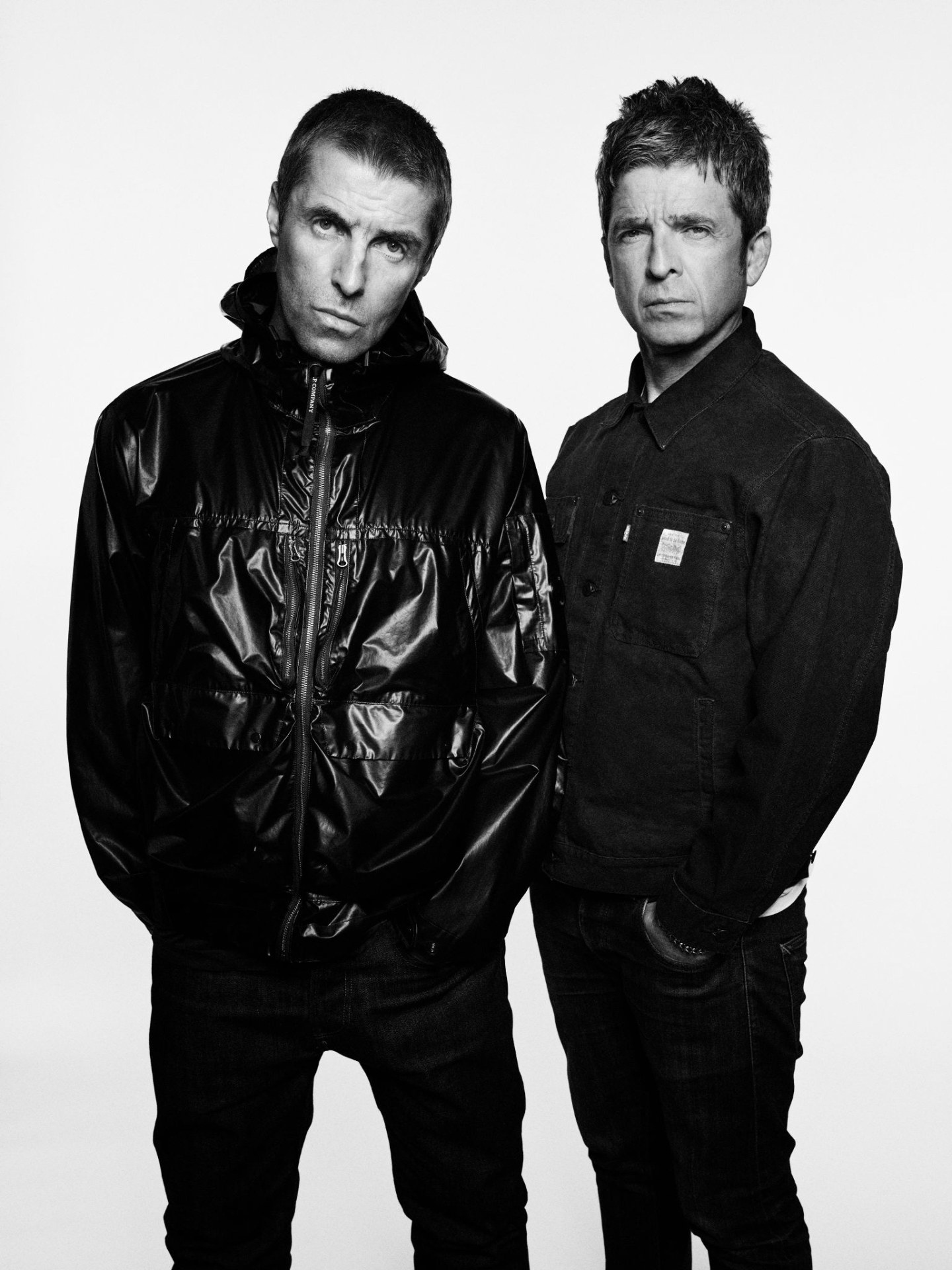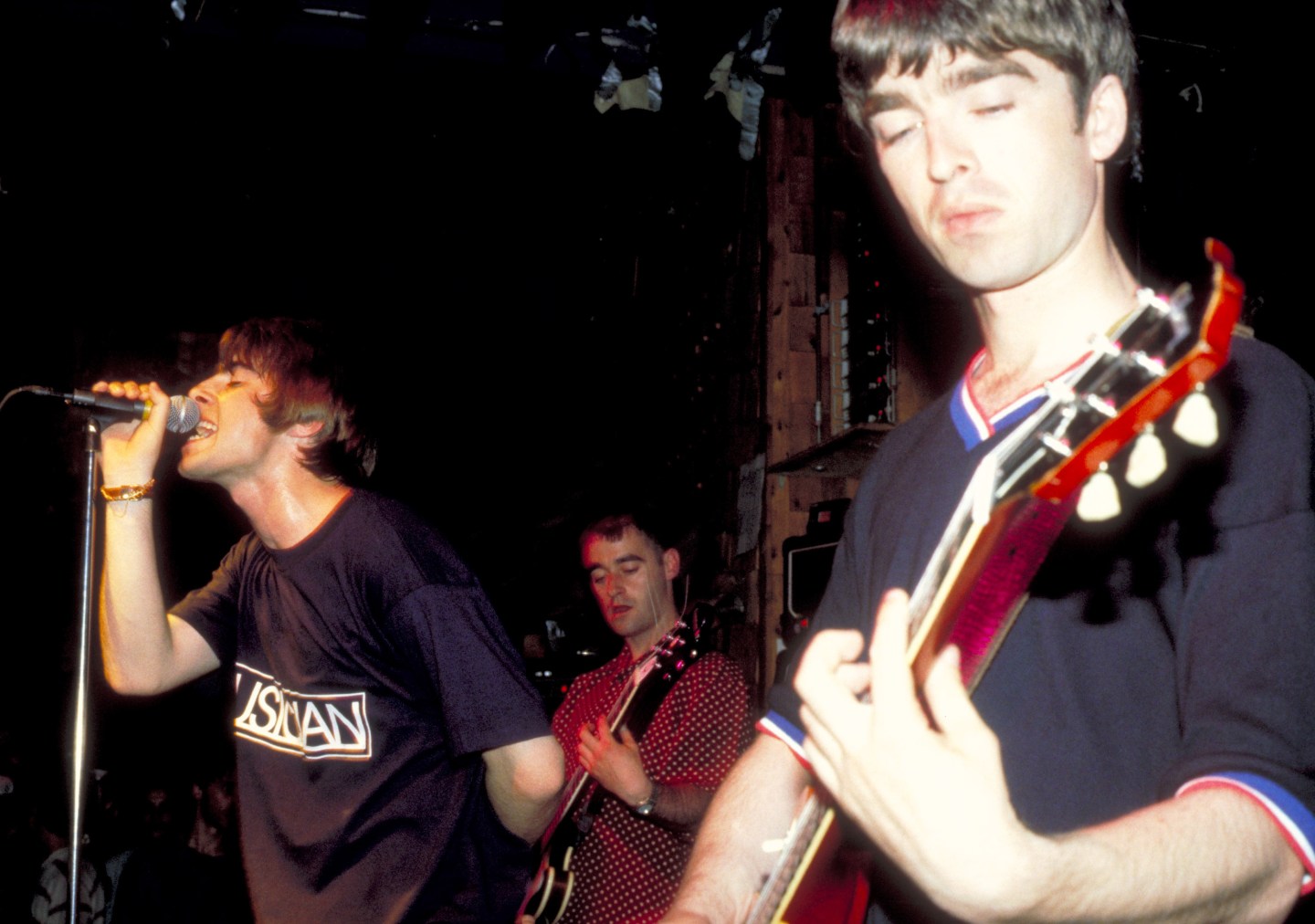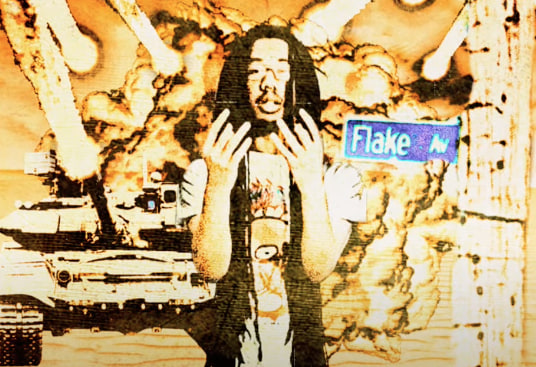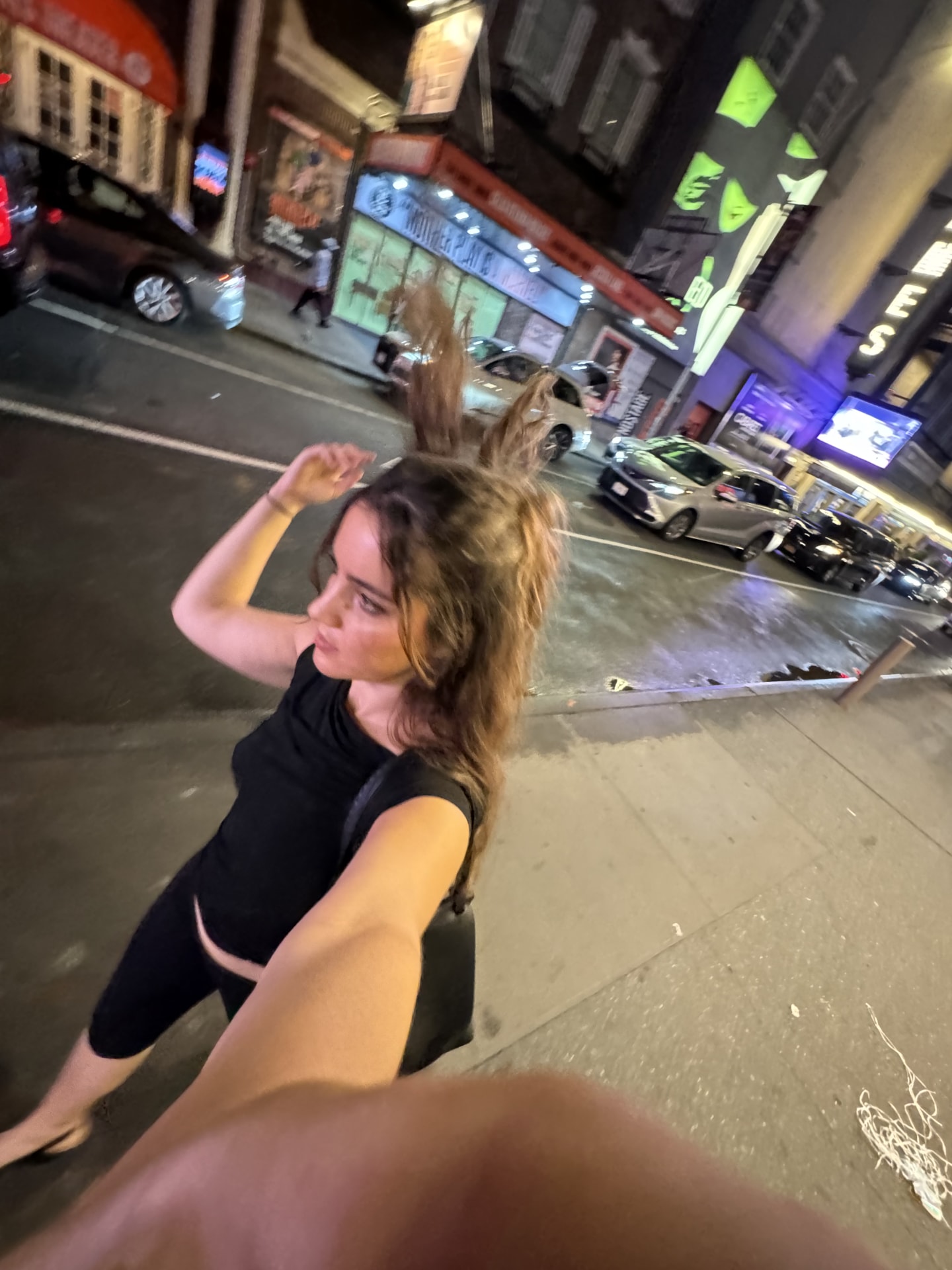Oasis in concert at Wetlands, NYC – 1994
Photo by Steve Eichner/WireImage
Earlier this month, in an interview to mark the 30th anniversary of Oasis’s 1994 album Definitely Maybe, Noel Gallagher praised his brother Liam’s voice. “When I would sing a song, it would sound good. When he sang it, it sounded great,” the elder of the U.K.’s most famous rock star siblings said before landing on a suitably boozy analogy. “My voice is half a Guinness on a Tuesday – it’s all right,” he said. “Liam’s is 10 shots of tequila on a Friday.”
That interview marked a rare moment of kindness from Noel, who has routinely directed his savage tongue at his swaggering brother since Oasis split in 2009 following a violent argument at a festival in Paris. Noel has called Liam “unsophisticated,” a “filthy little misogynist sexist prick,” and, most poetically, “a man with a fork in a world of soup.” Liam has volleyed back, most often on Twitter. It was there, in 2016, that he labeled his older brother a “potato.”
The “10 shots of tequila” comparison, in hindsight, looks to have been the first sign of a thaw in the frosty relationship. Over the weekend, rumors of an Oasis reunion began to emerge, and on Tuesday, the band officially announced a series of 2025 stadium shows in the U.K. and Ireland. Press materials describe the dates as the “domestic leg” of the tour adding that “plans are underway” for shows in other continents later in the year.
There has been no specific reason given for the reunion — some point to the anniversaries of the band’s stand-out albums Definitely Maybe and 1995’s (What’s The Story) Morning Glory?, others the cost of tea bags — but the truth is that an Oasis reunion has always been a when, not if, situation.
While the band remains one of Britain’s most entertaining soap operas, Oasis are not purely a source of drama. Their music has provided millions with an enduring source of escapism, adrenaline, unification, and starry-eyed romanticism. They arrived with attitude into an early ‘90s rock world reeling from the implosion of the U.S.-centric grunge scene and gave the U.K. a sense of identity that, alongside a newly elected Labour government, transcended guitar music and made Britpop a cornerstone of the global cultural force known as “Cool Britannia.”

Oasis in 2024
Simon Emmett
To this day songs like “Wonderwall” and “Don’t Look Back In Anger” are 10-foot-tall soundtracks to a generation and de facto national anthems in their native U.K. and beyond. At their best Oasis songs shone a spotlight on the dreams of the working class (“You’re the outcast / You’re the underclass / But you don’t care / ’Cos you’re living fast,” Liam snaps on “Bring It On Down”) and, as on “Acquiesce,” underscored the importance of loving relationships with heartfelt mantras (“Because we need each other, We believe in one another.”)
The band’s absence has felt like both someone missing from the party and a wasted opportunity. The Oasis vacuum is a real phenomenon and lots of bands have tried to fill the void. Kasabian, The Courteeners, Viva Brother to name a few, have wilted under the pressure and knowledge that one day the real deal would return. Arctic Monkeys arguably came closest but have strayed in the last half-decade by diversifying their sound, something neither Gallagher would entertain. Matty Healy is a Gallagher in spirit but The 1975 are too self-aware to achieve the simple, swaggering pleasures of Oasis. For a generation of lager-drinking, Adidas-sporting fans the search for the next Oasis has never shifted onto whether anything else out there was for them. Oasis have even become a part of the great AI debate thanks to AISIS, an album-length project of music with AI-generated vocals in the style of Liam, released last year. Liam co-signed the project after it went viral, buoyed by fans desperate for some form of comeback, synthetically generated or otherwise.
More recently Oasis, and Britpop more generally, have become a reference point for a range of different artists. Frank Ocean listens to Definitely Maybe in his seaside home, Kendrick Lamar wears their merch, Dua Lipa references the era as a shorthand for optimism, and both A.G. Cook and Nia Archives have looked to the guitar-heavy ‘90s scene as an accent in their future-facing dance music.
Both Gallaghers have helped keep the legend of Oasis alive with their subsequent career arcs. Whether you saw Noel with his band The High Flying Birds or Liam with the now-defunct Beady Eye and subsequent solo career, you were guaranteed to get a healthy amount of Oasis songs in those live shows (most recently, Liam performed Definitely Maybe in full for a 30th-anniversary tour with original Oasis guitarist Paul “Bonehead” Arthurs.) And then there is the raft of documentaries, live DVDs, and reissues that both satiate that diehard fan base and help introduce them to new generations. Ironically, the one thing the Gallaghers have been able to agree on since 2009 has been the importance of their own band’s back catalog.
Whether it’s rose-tinted memories of the ‘90s fading away in the dying light or proof that nostalgia remains the most revitalizing drug in the Oasis universe that isn’t white and powdery, this is a reunion that’s hard to tear your eyes away from. Two men whose love language is calling each other scum announcing a tour a year in advance feels like a gamble worthy of Las Vegas. Can they avoid falling out for that long to make it onto the stage? Will they even speak to one another? What will they open their set with? How will they sound? Who will support them? Will they add more dates?
The risk and unpredictability of what is to come is counteracted only by the inevitability of it all. This was always going to happen and will almost certainly run smoothly. Perhaps the biggest question for a band that has lived in the shadow of this moment for so long now is what will they do when it’s all over?




